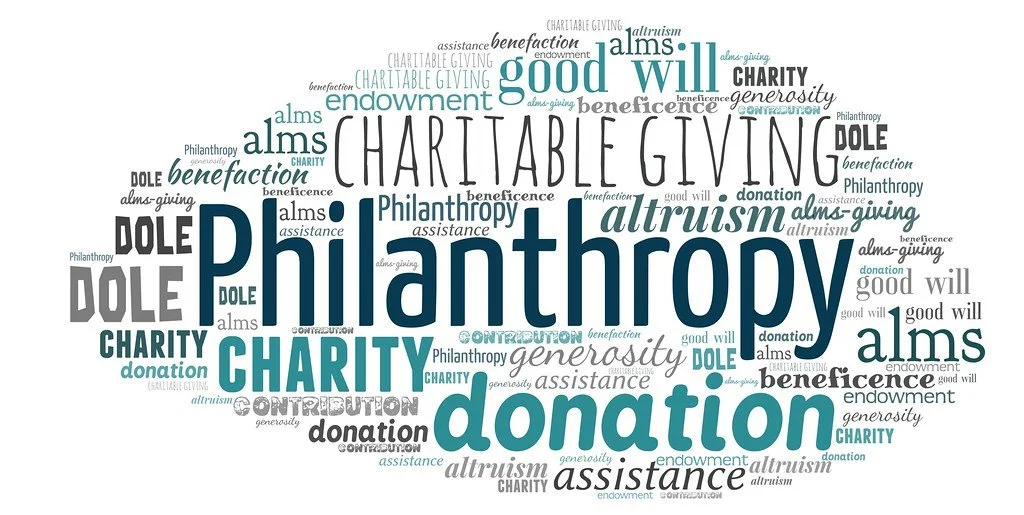Tatas Are The Second Largest Indian Philanthropists in the United States
Jamsetji Tata, founder Tata Group and Tata Trusts
February 25, 2023
Recently, India’s Tata Group got extensive coverage in the western business media. This followed an order from Air India, which is owned by the group, for airplanes from Boeing and Airbus reportedly worth $68 billion.
Less known is the fact that Tata philanthropic entities have donated more than $205 million to educational institutions in the United States; their overall giving is much higher. They are the second largest Indian philanthropy donors in the U.S., after the late Indian American Amar Bose.
In 2010, the Tata Group donated $50 million to the Harvard Business School (HBS), the largest from an international donor in the school’s 102-year history. “This gift will support the School's educational mission to mold the next generation of global business leaders," said Ratan Tata, then chairman of the group in a statement at that time.
The gift funded Tata Hall, a new academic and residential building on the HBS campus in Boston for participants in the executive education programs. Tata attended the Advanced Management Program in 1975, which is one of three executive education programs HBS offers.
Earlier in 2008, the Tata Group donated $25 million to set up the Tata-Cornell Initiative in Agriculture and Nutrition at Cornell University, Ithaca, New York. Its goal is to help improve the productivity, sustainability, and profitability of the food system, with the aim of reducing poverty and malnutrition in India.
The group also gave $25 million to the university for the Tata Scholarship Fund, to help attract more students to Cornell from India. The fund supports up to 25 Tata scholars at Cornell at any one time.
The Tata gift is "one of the most generous endowments ever received from an international benefactor by an American university," Cornell President David Skorton said in a statement at the time.
Ratan Tata, 85-years-old, spent seven years at Cornell completing courses in engineering and earning a B.S. in architecture in 1962. While at Cornell, he got interested in flying, racing cars and scuba diving, which became his lifelong passions.
He worked briefly with the firm of Jones and Emmons in Los Angeles before returning to India in late 1962 to join the Tata Group. After serving in various companies, he was appointed director-in-charge of The National Radio and Electronics Company in 1971. In 1981 he was named chairman of Tata Industries, and in 1991 he was named chairman of Tata Sons, the holding company of the Tata Group. During his tenure, the group's revenues grew more than twelve-fold.
Ratan Tata, left, with Cornell University President David Skorton. 2008. Photo: Cornell University.
In 2015, the Tata Consultancy Services (TCS), a leading global IT services and consultation organization, donated $35 million to Carnegie Mellon University (CMU) in Pittsburgh. The gift, the largest corporate or international gift to CMU, funded the setting up of the TCS Building. It also supports education and research, including endowing Presidential Fellowships and Scholarships to students.
TCS has an office in Pittsburgh. The investment in CMU will "promote market-driven innovation and accelerate advancements in technology, " said Chief Executive Officer Natarajan Chandrasekaran, in a statement at that time. He is currently the Chairman of the Tata Group as well as of Air India.
A year later, Tata Trusts donated $70 million to the University of California San Diego (UCSD). The funds, with matching contributions from UCSD, established the Tata Institute for Active Genetics and Society (TIAGS) and a complementary, collaborative research enterprise in India. The goal is to find solutions to address issues ranging from health care to agriculture.
"Together, we will promote bioscience research, discoveries and education that will benefit populations around the globe," Ratan Tata said in a statement at that time. He was then Chairman of the Tata Trusts.
The trusts support philanthropic efforts in education, health, livelihood generation and art and culture, mostly in India. They are funded by their ownership of two thirds of the equity of Tata Sons, the holding company of the Tata Group of companies.
Founded by Jamsetji Tata in 1868, the group comprises of 30 companies including TCS, Tata Motors, Tata Steel and Tata Consumer Products. Together their annual revenues exceed $100 billion, have a market value of more than $300 billion and employ over 800,000 in 100 countries.
Three of the four Indians on the 2022 Forbes list of 400 richest Americans have earned their wealth in California’s Silicon Valley, with net worth ranging from $4.7 billion to $6.4 billion. In addition, there are dozens of other Indians who have become billionaires in the U.S., mainly by founding technology companies.
Yet the Indian American billionaires have given little to philanthropy. One notable exception is the late Amar Bose. He founded Bose Corporation, based near Boston, which sells speakers and other audio equipment. In 2011, he donated - without any publicity - a majority of the shares in the company to the Massachusetts Institute of Technology (MIT). The donation was then estimated to be worth more than $2 billion.
Jamsetji Tata set up many of the Tata Trusts in the 1900s. In 2021, he was named the Edelgive Hurun Philanthropist of the past century: Tata trusts donated $102 billion, followed by $75 billion given by the Bill Gates and Melinda French Gates foundation.
“In a free enterprise,” Jamsetji Tata noted, “the community is not just another stakeholder in business, but is in fact the very purpose of its existence.”
FOR MORE UNIQUE STORIES ON INDIANS AND INDIA:
For access to stories each week email: gitimescontact@gmail.com
or follow via LINKEDIN or TWITTER or FACEBOOK








